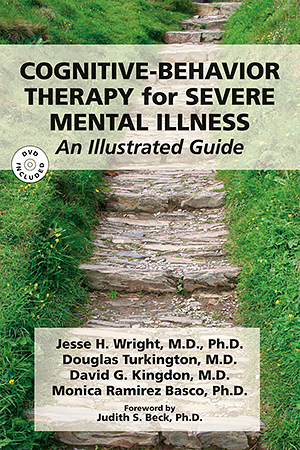Chapter 8.Mania
Sections
Excerpt
It may go without saying, but the peak of a manic episode when thoughts are racing, sleep loss is causing fatigue, mood is irritable, and agitation is high may not be the best time to teach CBT skills. Interventions can have greater impact and information is more likely to be retained if conveyed when the person is much less symptomatic. As manic symptoms emerge, the patient can call on previously acquired skills to help manage them. As symptoms worsen, clinician guidance is usually needed to help the patient slow down, focus on one symptom at a time, and utilize structured interventions.
Access content
To read the fulltext, please use one of the options below to sign in or purchase access.- Personal login
- Institutional Login
- Sign in via OpenAthens
- Register for access
-
Please login/register if you wish to pair your device and check access availability.
Not a subscriber?
PsychiatryOnline subscription options offer access to the DSM-5 library, books, journals, CME, and patient resources. This all-in-one virtual library provides psychiatrists and mental health professionals with key resources for diagnosis, treatment, research, and professional development.
Need more help? PsychiatryOnline Customer Service may be reached by emailing [email protected] or by calling 800-368-5777 (in the U.S.) or 703-907-7322 (outside the U.S.).



